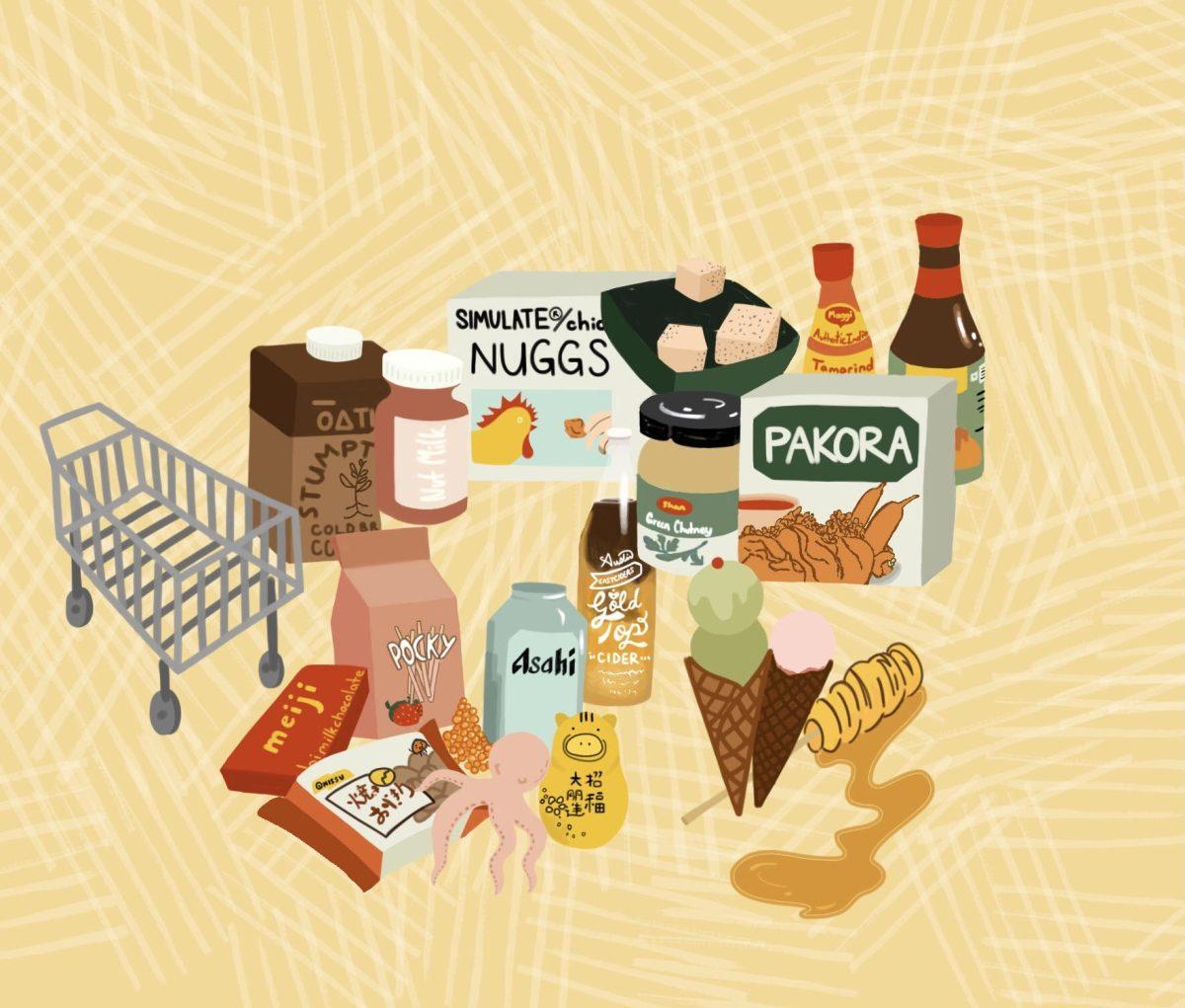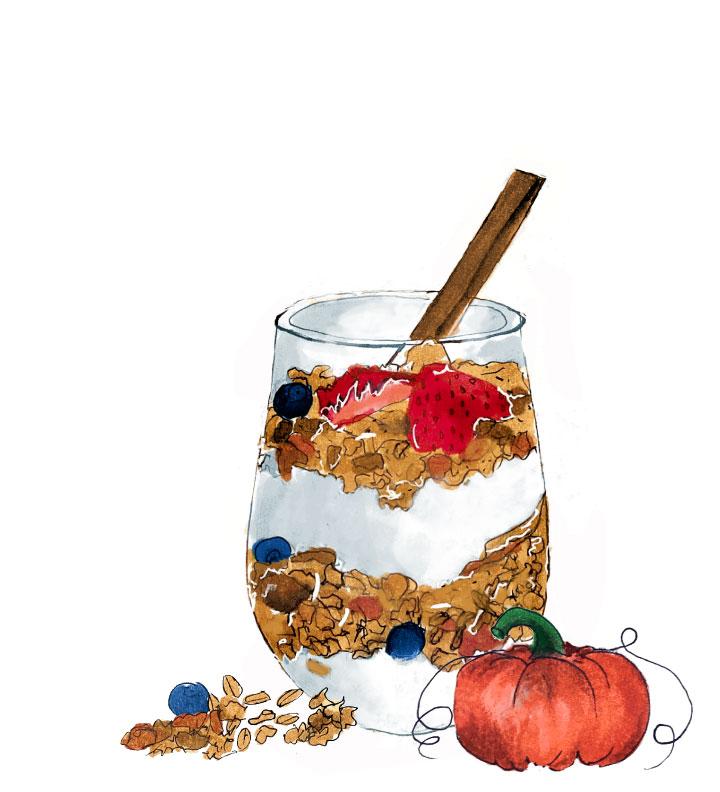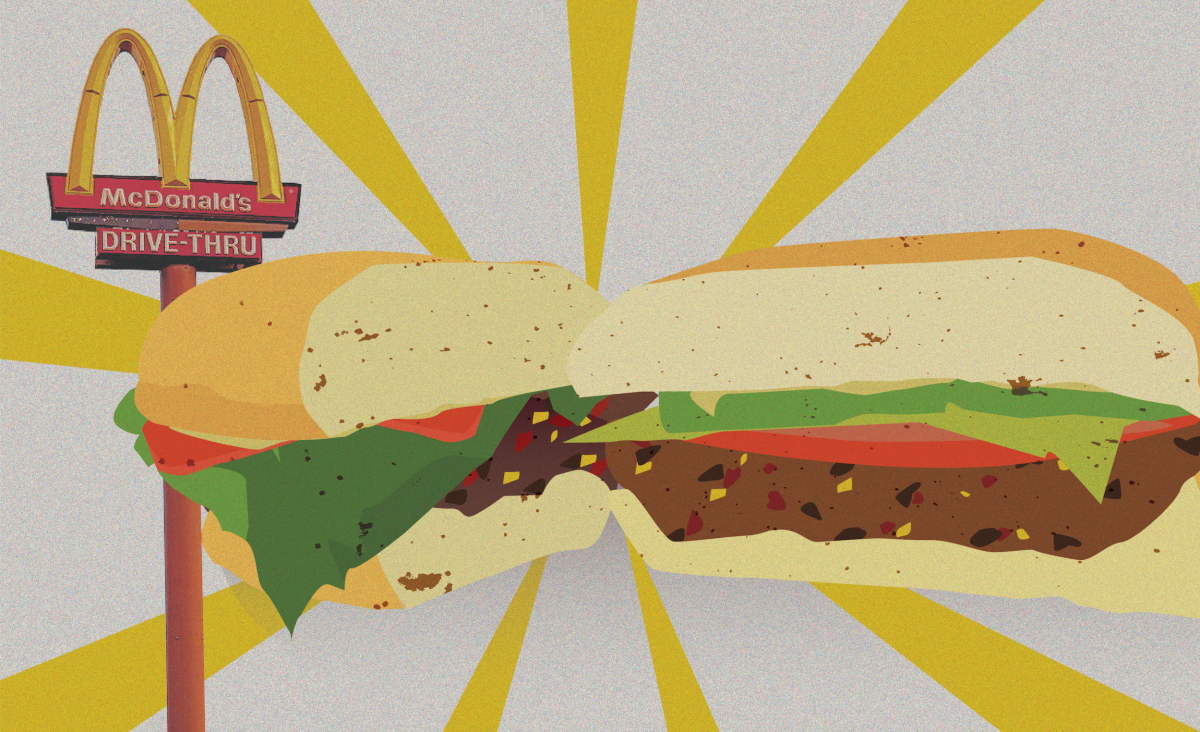When coming to college, incoming students are often fearful of gaining the infamous “freshman 15.” Students now have complete freedom over their meals and more available meals to eat. This weight gain is primarily due to the lack of nutritional knowledge of what the body needs to stay healthy.
Story by Abby Morgan
Illustration by Bryant Ju
Your diet is going to change when you go to college. What’s most important about this change is focusing on healthy decisions for both your mind and body. Here are some tips for taking the first steps to being healthier and feeling better in your body.
Eat What You’re Craving, Just In Moderation
Nutrition isn’t required learning material in high school, which means that everybody approaches it differently. Eating patterns are often dictated by one’s home life and what parents put on the plate. This is why there is such a gap when it comes to understanding healthy eating.
Healthy eating doesn’t mean completely giving up pizza or cake. You can try everything that you want, but just in moderation. If you know you’re going to splurge at dinner, eat a low-carbohydrate breakfast and lunch. If you want to have a latte, make sure to drink more water for the rest of the day.
Plan your cheat days, and give yourself motivation to last through the week with a weekend splurge. You shouldn’t limit yourself from the foods you love, but be sure to take steps to maintain your progress.
Carbs Can Still Be Your Friend
The main job of carbohydrates is to give energy. Carbs are the first source of energy that the body uses for basic functions like moving your arms or sprinting down a track. When the body lacks carbohydrates, it moves onto other sources, like protein and fat, for its energy. When the brain uses fat and protein as its source for fuel, it can result in mood swings, an inability to focus and the brain functioning at a lower capacity.
It’s popular to cut out carbs, because it leads to fat loss, but this is short-lived as the fat can immediately come back when a person goes back to eating carbs. Additionally, an elimination of carbs can cause sluggishness, an inability to exercise efficiently and hormone imbalance, which often leads to irritability and lower levels of concentration.
The amount of daily carbs the body needs is different for everyone based on the types of carbohydrates eaten, their activity level and their ultimate fitness goal. When eating clean, it’s important to consume complex carbs such as whole grains, rice and vegetables, and limit simple carbohydrates like cookies, cereal and soda.
Health Isn’t Just Physical, It’s Mental Too
Distinguished senior lecturer and registered dietician Lydia Steinman believes that a major issue facing students is their limited budget. Food insecurity is high for college students, and available resources and aid aren’t often publicized. Food stamps and other programs have a negative stigma, but the resources are there, and there is no shame in getting help. The busyness and high activity of a college environment often causes stress-eating or even binge eating. Developing methods to combat these types of highly stressful situations is crucial to maintaining one’s health.
“You are what you eat,” the saying goes. Your body needs fuel and the nutrients you provide affect your body and mind’s ability to function at its best. Avoid excessive amounts of caffeine and be sure to drink enough water. Most health authorities recommend drinking eight 8-ounce glasses of water per day. Caffeine is not a bad thing, but in excess (more than 4 cups a day) it can cause a high heart rate, anxiety and difficulty sleeping.
You can improve your mental functions by starting the day off right. Skipping breakfast can cause sluggishness, so the morning is a great time for some “brain food.” Brain food contains nutrients specifically intended to keep the brain supplied with the energy it needs, such as blueberries, eggs, tomatoes or fish such as salmon or trout, for example.
Meal Plan Your Own Way
As a college student, it can be hard to plan what to eat. You haven’t slept in two days, you’re not sure if you wore that shirt yesterday and you have to cook every meal? No. It’s not realistic to assume you’ll ignore each beckoning call of Chick-fil-A, so you’ll need a game plan to ensure you eat the food that will help overcome the temptation.
Menus are available online for all on-campus dining halls—look online and decide what you want before you walk in hungry and see something tempting. Pack snacks if you know you’re going to be studying all day. Trail mix, premade energy balls and hummus with pretzels will give you energy and keep you mentally focused and full.
Though meal planning has to be personalized to work for you and your goals, you can develop a routine over time, and it will soon become second-nature.












































